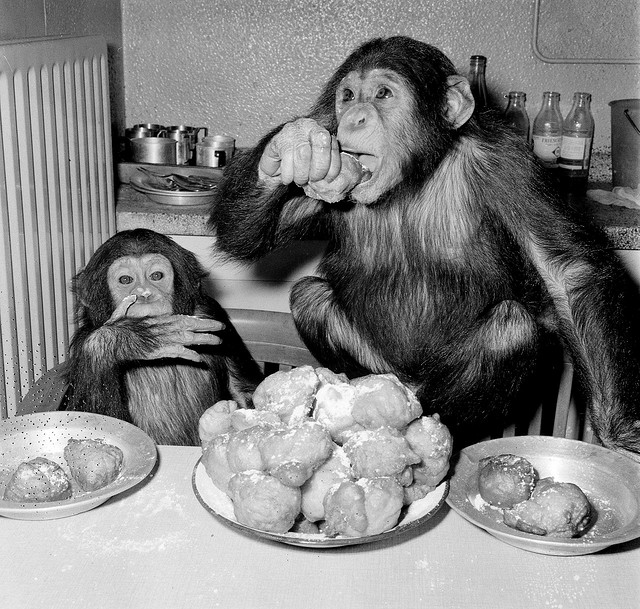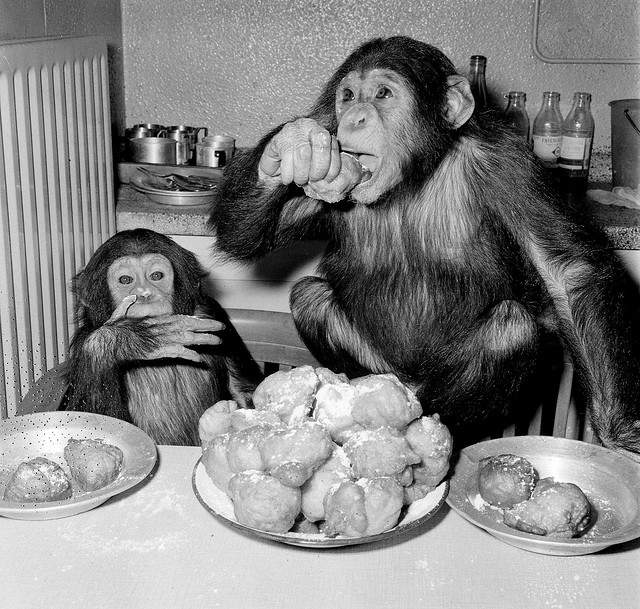
Are they going to think it’s as funny as we did that we ate all of these? (Photo courtesy of the National Archives of the Netherlands.)
So, assuming you don’t believe that we came from Adam and Eve and that we were in some way descended from non-human primates, it should not come as a huge shock to you that we have some of the same laughing habits as apes. No, it’s not that apes can’t wait for Anchorman 2 to come out either or are also sad that Phyllis Diller died. But a recent study published in Evolution and Human Behavior indicates that they do laugh at practical joke-type stuff, such as someone slipping on a banana peel (which is much more common among apes anyway). And the way that we laugh — making sort of weird animalistic honking sounds — is how apes laugh too.
The study didn’t figure out every damn thing about people, laughter, and apes — gotta leave something for the next study, so you can get more of those sweet, sweet tax dollars. But it suggests that laughter predates language, and, ergo, humans. In fact, laughter plays a social role that may have helped early human communities emerge.
We don’t laugh exactly like apes, which is a relief, because what’s the point of evolving from someone if you’re then going to be exactly like them, mom. In social situations, we tend to laugh in groups of three or four, which allows us to bond in small groups. Laughter releases neurochemicals that contribute to a sense of connection with the people around you, and the fact that humans can laugh together widens that bonding circle — apes, according to the study, only laugh in groups of two. We don’t want to argue with science, but we think maybe if you put a bunch of apes together in a room with a researcher and the researcher slipped on a banana peel, all of the apes might just laugh at once.



